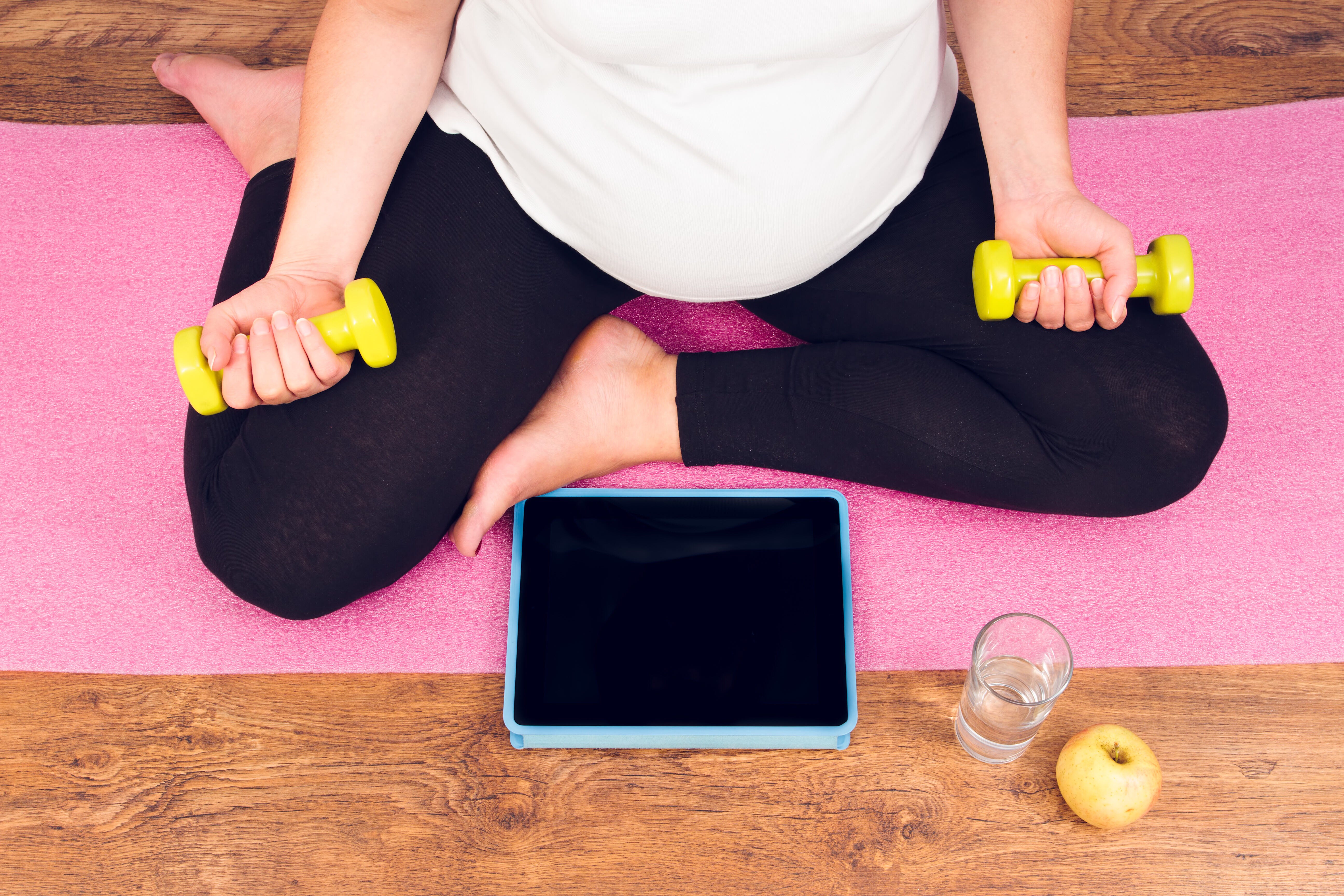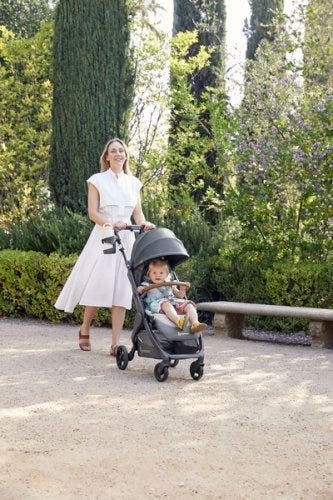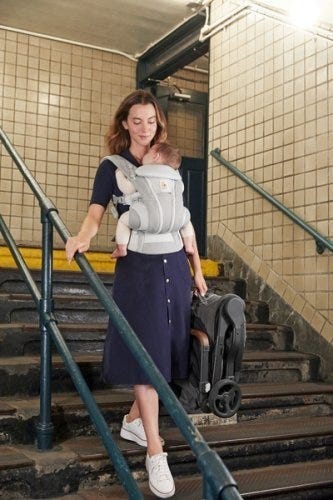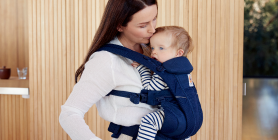
In preparation to write an earth-shattering piece on nutrition for pregnancy, I realized the recommendations we give to pregnant women are suspiciously close to ones we give to regular people. There are the pregnancy-specific no-no’s (no alcohol, smoking, caffeine, raw fish, or lunch meat), but the do’s are common recommendations for a healthy lifestyle: Eat A Rainbow of Foods! Drink So Much Water!! Don’t Drown Yourself in Refined Sugars!! Please Exercise! Whole foods (those which are unprocessed and as close to their natural state as possible) are your best bet in giving your baby the best nutrients for growth. Our goal is to enjoy nutrition from all the different food groups in balanced amounts. Since you already know the basic tenants of nutrition (eat your fruits and veggies, etc.), let’s focus specifically on why you need extra protein and a bunch of nutrients during pregnancy and how to find them in whole foods.
Protein is Key
We learned in school that protein is a key building block in repairing muscles and tissues, as well as growing hair and nails. During pregnancy, eating at least 75 grams of protein per day plays an important role in increasing a woman’s blood supply and can also help in lowering the risk of pregnancy-related diseases like preeclampsia. Women have also noticed a link in increased protein intake and decreased instances of morning sickness and swollen feet. Protein can be found in fish, chicken, turkey, pork, tofu, legumes, nuts, milk, cottage cheese, eggs, and whole grains. Vegetarians and vegans have to work a little harder to source the amount of protein needed to increase their blood supply, but it’s definitely possible.
Nutrients Rule
There are five nutrients that matter the most during pregnancy: calcium, iron, zinc, fiber, and folate. They’re all easily found in dietary supplements, but during pregnancy, it’s ideal to get these nutrients from actual food as often as possible. Generally, the body distributes and utilizes nutrients most effectively when they’re absorbed naturally. Calcium is important to build your baby’s bones and teeth, but it also may help reduce your risk of pregnancy-related complications, like hypertension or preeclampsia. We typically associate calcium with dairy, but it’s also present in dark leafy greens like kale, broccoli, and bok choy, as well as edamame, almonds, and figs. Fiber serves to combat pregnancy-induced constipation and exists in split peas, lentils, black beans, blackberries, and broccoli. Iron intake is important in avoiding anemia (deficiency of red blood cells or hemoglobin in the blood) and is in leafy greens, dried fruits, eggs, molasses, fish, and cherry juice. Zinc supports the immune system and exists, interestingly enough, in different kinds of seeds: squash, pumpkin, watermelon, and sunflower. It also shows up in eggs, mushrooms, brewer’s yeast, and turkey. Folate or folic acid (a B vitamin) is important to prevent neural tube birth defects (like spina bifida), but is one that’s actually a bit difficult for the body to extract from food. You can find folic acid naturally in whole grain breads, dark leafy greens, avocados and citrus, but popping a vitamin is a totally okay way to supplement what you need, too.
You’re Doing Great
The fact that you’re taking the time to read this article means that you care about your baby’s well-being and you’re already an amazing mom. Really. You’ve got a million suggestions of what to do and how to eat well, but chances are you already know what’s best for you. Your body will tell you what’s okay and what’s not. Eating food that makes you feel good is always a good call, but if you’ve got a weird craving, that’s okay too. Food cravings are totally normal in pregnancy and can indicate a need or deficiency in your diet. Although we all know it’s best to avoid refined sugars, maybe you kinda need that ice cream sundae. I think it’s all about balance. As long as you’re also eating a rainbow of fruits and veggies, drinking a ton of water, and enjoying some light exercise, you’re totally fine. :) Photo credit: @przemekklos via Twenty20
Please use caution when attempting any of the carries, exercise or activities highlighted on this blog, social media or any other content channels. Please use common sense and caution when using a baby carrier. You should consult a physician before starting any diet or exercise program. For more information, see our Disclaimer.
Emotional Benefits of Getting Outside
Spending time in nature with your baby can strengthen the bond between you. The simple act of holding your baby close, feeling their warmth, and sharing new experiences together can create strong emotional connections. It’s also a wonderful way to reduce stress and improve your mood. When my littles were extra fussy, I’d take a walk around the neighborhood. Even though I don't live in an area with trails and surrounded by nature, simply behind outside changed everything. A little vitamin D does wonders!
Cognitive Development
Nature is a sensory wonderland for babies. The different sights, sounds, and smells can stimulate your baby’s senses and promote cognitive development. Watching leaves rustle, hearing birds chirp, and feeling the texture of a tree bark can all contribute to their learning and development.
All About Baby Carriers for Nature Adventures
Choosing the Right Baby Carrier
When it comes to selecting the best baby carrier for summer adventures, there are several options to consider.
Types of Baby Carriers:
- Wraps: Perfect for newborns, providing a snug and secure fit.
- Slings: Ideal for quick and easy use, offering good ventilation.
- Soft Structured Carriers: Versatile and comfortable for both parent and baby, suitable for longer trips.
Factors to Consider:
- Baby’s Age and Weight: Ensure the carrier is appropriate for your baby’s size and weight. For example, Ergobaby’s Embrace Newborn Carrier is perfect for the fourth trimester where baby is small and you’re looking for an easy way to stay close. As they grow, you’ll want to upgrade to an all-position carrier that’s meant for growing babies.
- Parent’s Comfort and Ergonomics: Look for carriers with padded shoulder straps and lumbar support if you’re planning on longer outings.
- Ease of Use: Choose a carrier that is easy to put on and take off.
- Climate and Breathability: Opt for carriers made of breathable fabrics to keep you and your baby cool in hot weather.
Safety Tips:
- Proper Positioning: Ensure your baby is seated correctly, with their legs in an "M" position and their head should be close enough to kiss.
- Checking for Wear and Tear: Regularly inspect your carrier for any signs of damage.
- Ensuring Adequate Support: Make sure the carrier provides proper support for your baby’s head and neck.
Exploring Nature with a Baby Carrier
Ideal Spots for a Nature Walk with Baby
- Parks and Gardens: Great for leisurely walks and picnics.
- Nature Trails and Forests: Perfect for more adventurous outings.
- Beaches and Lakesides: Wonderful for enjoying the water and sand, with the right carrier.
Activity Ideas
- Hiking: Enjoy a scenic hike with a hiking baby carrier that offers support and storage.
- Bird Watching: Use your carrier to keep your baby close while you explore and observe wildlife.
- Picnics: A carrier can free up your hands, making it easier to carry picnic supplies.


Advantages of Using Strollers for Nature Adventures


While baby carriers are fantastic for mobility and closeness, depending on the adventure of choice you might want to be a stroller along too.
There are a LOT of baby stroller options on the market. So we understand how confusing it can be to choose the one that’s right for your family. Not only are there a variety of brands, but a variety of strollers that serve different purposes.
There are a few types of strollers on the market:
- Full-sized stroller: This is typically the stroller parents thing of buying for all its versatility.
- Lightweight or umbrella stroller:These compact strollers are perfect for on-the-go adventures.
- Jogging stroller: Designed for parents who want to combine fitness with outdoor adventures.
- Double stroller: Designed for parents with multiple kids, especially twins.
- Car seat carrier: These strollers connect to a specific car seat. We don't typically recommend these as they can be unsafe for baby and uncomfortable for parents who are pushing.
Learn more about the types of strollers and which one would be best for you.
Benefits of Bringing a Stroller
- Storage Space for Gear: Ample room for carrying all your essentials like a diaper bag, beach toys and more.
- Shade and Weather Protection: Built-in canopies to shield your baby from the sun when they are lounging.
- Options: If you have more than one kid, you can stroll with one and carry the other. Or, if you’re getting warm or your little one is getting fussy, you can switch up their position from stroller to carrier or vice versa.
Safety Tips for Strollers
- Ensure your stroller is in good working condition. Make sure buckles are still buckling and that there are no rips or holes that could compromise your baby’s safety.
- Use sunshades or bug nets to protect your little one’s skin.
- Securing the baby properly: always buckle up your baby for safety even if you think they are old enough to go without the buckle.
Combining Baby Carriers and Strollers
For the ultimate flexibility, consider using both a baby carrier and a stroller on your outings.
Combining both options allows you to adapt to different situations. Use the carrier for more rugged trails and switch to the stroller for smoother paths or when your baby needs a nap.
Transition Tips
- Smooth Transitions: Plan stops where you can easily switch from carrier to stroller.
- Pack Light: Only bring essentials to make transitions easier.
Tips for a Successful Adventure
Planning Ahead
- Route Planning: Choose baby-friendly trails and parks. Check local mom groups or outdoor groups and get recommendations for the best outings for kids.
- Check Weather Conditions: Avoid extreme heat or unpredictable weather. Even with our most breathable carriers, when it’s hot, it’s hot. And having two bodies against each other in the heat will be naturally hot and sticky already.
- Packing Checklist: Include diapers, snacks, water, sunscreen, and a first-aid kit. These all-position carriers have storage pockets where you can fit some of the items easily!
- Stay Hydrated and Nourished: Pack healthy snacks to keep energy levels up and bring plenty of water for both you and baby.


Summer adventures with your baby are a wonderful way to create lasting memories and enjoy the beauty of nature together. From baby carriers to strollers, Ergobaby products are designed to provide comfort and ease for both you and your little one. So, gear up, get outside, and explore the world with your baby by your side.
Ready to embark on your own summer adventures? Check out Ergobaby’s range of baby carriers and strollers to find the perfect match for your family’s needs. Visit our website today and start planning your next outdoor excursion!
























